-
About
- About Listly
- Community & Support
- Howto
- Chrome Extension
- Bookmarklet
- WordPress Plugin
- Listly Premium
- Privacy
- Terms
- DMCA Copyright
- © 2010-2024 Boomy Labs


 John Huh
John Huh
Listly by John Huh
Love it or hate it, the LS1 engine swap has definitely taken on a life of it's own in recent years. Tuners and engine swappers who are used to importing engines from overseas to swap into their cars, have now turned to the GEN III GM engine known as the LS1. What is the LS1? Technically, it's the engine code or GM RPO for the very popular 5.7 liter small block first found in the 1998-2001 Camaro, Firebird, and TransAm.
It's also found in the Corvette, making the GEN III LS1 engine one of the most robust and flexible small block V8 engines in history. For the purposes of this list however, the term LS1 encompasses the entire range of GEN III engines, which includes many popular budget LS engines that can be swapped into your chassis.
So this list of how to plan your LS1 swap will help you identify,and plan for your engine swap, no matter what donor car you are putting it into. We'll try to cover all the points on this list, and as always if you have any corrections or ideas on how this list can improve, let us know!
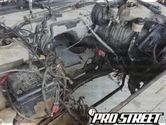
If you are planning an LS1 engine swap, you'll need a donor car to put it in. There's quite a few options for the LS1 engine swap, from the Nissan 240SX, Datsun 240Z and the Mazda Miata.
Picking your chassis and preparing it is a step you should take care of now so that you know what you'll need to complete the LS1 swap. Removing your factory engine isn't as hard as you might think.
Once you have the engine removed, you can move onto the next step in how to plan your LS1 swap.
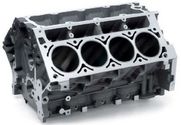
Remember that the term LS1 doesn't exactly mean the 5.7 liter version only. Because GM continues to build upon their production stable of GEN III and IV small blocks continues, there is an ever expanding selection of parts, engines and heads to choose from.
If cost is not a factor here, jump to the biggest and baddest of them all, the LS7. Displacing 7.0 liters and belting out 505 horsepower and 475 ft. lbs of torque, the LS7 is the pinnacle of GEN III technology.
However if you are like most people and not made of money, planning a budget build isn't difficult at all. If you are confused with the many different names for the GEN III engine, translating the GM RPO is a big part of locating and getting the engine you want.
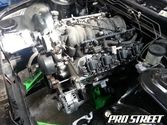
Depending on your LS1 swap, you will need to go through your GM engine and find any sensors that must be replaced or changed. This usually involves looking over the engine and locating broken tabs, connectors and replacing them.
If you are not sure what sensors you need for your LS1 swap, this guide can help you identify, locate and replace with the GM direct part numbers for each sensor.
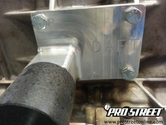
Finding the right mount kit is a big step in planning your engine swap, because there's so many choices out there. When planning a LS1 engine swap, make sure you have a good idea of what your goal is. Buying the wrong engine swap mount kit could be disastrous, especially if your sanctioning body requires a tech inspection.
If you are building a LS1 swap for competition use, you will want to pay close attention to the rules of your sanctioning body. Because many of the LS1 swaps include modification to the subframe and / or frame rail, you want to make sure the LS1 mount kit you are buying is going to get the job done for you.
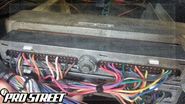
Luckily for most would-be engine swappers, the wiring aspect of the LS1 swap is more easier than ever. So many plug and play harnesses exist for this engine swap, that there's no reason you should do the wiring on your own.
But, if you are looking to save some money in a budget LS1 swap, there's several How To articles and guides online to help you wire in a LS1. Along with the engine and ECU harness, you may also need other wiring changes, including your speedometer and vehicle speed sensor.
Because the GM vehicle speed sensor probably isn't going to fit the chassis and more importantly the speedometer of your donor vehicle, a device like the Dakota Digital Translator helps you convert this signal properly.
Fans - Because many of the GEN III engines use a dual speed fan controller, you'd be wise to wire in your own relay based fan controller to make sure you don't overheat or blow your head gaskets.
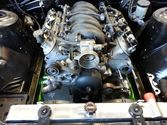
LS Engine swaps are becoming more and more popular, not only for the copious horsepower and torque numbers from a small block, but the many different variations and parts available.
Because GM continues to build upon their production stable of GEN III and IV small blocks continues, there is an ever expanding selection of parts, engines and heads to choose from.
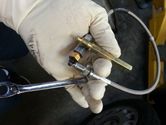
Now that you've got a clear cut plan your LS1 swap guide in hand, there's a few items that you NEED to get done to complete your LS1 swap. Let's run down each important LS1 swap step below :
Install a remote bleeder - Because the LS1 has an internal bleed style slave cylinder, this could be a pain if your chassis is smaller than a Camaro. Installing a LS1 into a RX-7? Nissan 240SX? Mazda Miata? you will want a remote bleeder to make the job of bleeding your clutch possible at all.
Free Mods - If you are stranger to the GEN III LS1 engine, there's quite a few upgrades you can do on your own while the engine is out of the car. Things like the LS1 coolant bypass or throttle body modification can increase horsepower without spending a dime.
Intake Manifolds - Installing an aftermarket intake manifold like the LS6 is a great way to upgrade on the cheap. While the intake manifold is off, you might want to look into fuel upgrades like aftermarket LS1 fuel injectors.
Reluctor Wheels - If you are building a budget LS1 swap, bravo for you! If you aren't sure what engine you want to choose, you aren't alone! With so many options available, it can be difficult to know exactly what engine you have.
Either way, if you are building your own LS1 swap, it's a good idea to check your reluctor wheels. Because there's two different versions of this trigger wheel, you don't want a nasty surprise when you go to start your LS1 swap and there's no spark.
Once you have your LS1 engine put into the donor car, check our troubleshooting guide if your LS1 swap does not start.

Once you have your LS1 swap completed, go out there and (Legally and safely) enjoy yourself!
